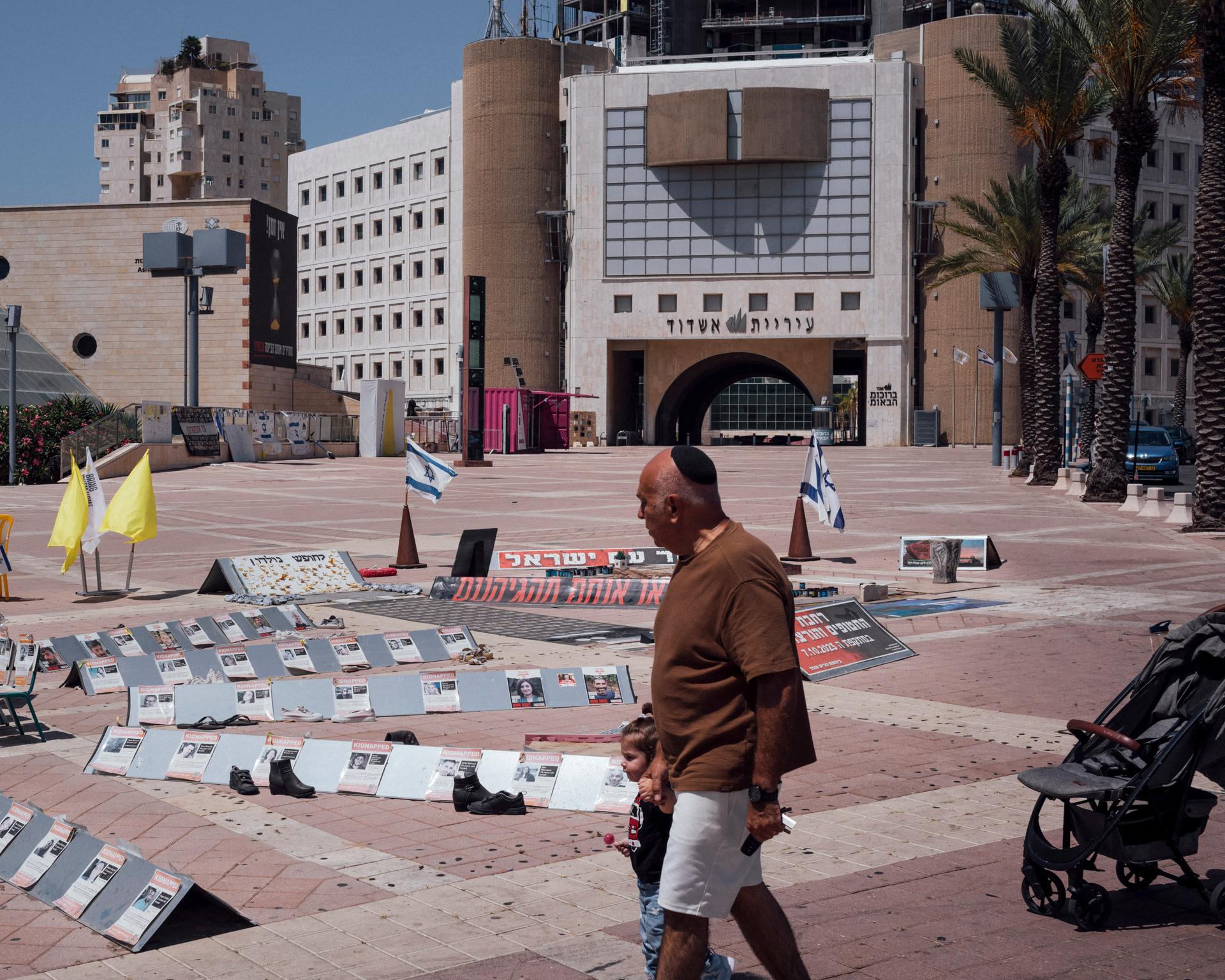Or Tzaidi runs a footvolley club – volleyball you play with your feet – with her boyfriend. They fell in love on this Ashdod beach, overlooking Israel’s largest industrial port and its refinery. At weekends they go to raves, dancing out in the open. For the past two weeks, she has also been a journalist. Channel 14 took her on, on a trial basis. At the age of 21, with no studies, no CV and no connections, Tzaidi has been writing articles for the website of this low-budget commentary vortex with a large following. Acquiescent to the Israeli right, this new TV channel is helping to normalize a discourse with genocidal overtones, in the ninth month of the war in Gaza. “They want young people, new blood,” said the young woman, who would prefer to write posts on social media – but you have to start somewhere.
Her editors have a good eye: Tzaidi is very much in tune with the times. She wants to take life lightly. She wants to speak the truth, like her champion, the minister of national security, Itamar Ben-Gvir. In her eyes, this anti-liberal homophobe, who believes in the supremacy of divine law and that of the Jewish people, is a democrat. He doesn’t see himself as an obstacle to feminism. As for the race war against Arabs that he has advocated throughout his career? “We know today that we cannot live together. There is no solution, but we can reduce the problem,” said Tzaidi. And the policy of hunger and ethnic cleansing in Gaza, for which he campaigns? She wants to believe that “they’ll leave voluntarily, if Israel offers incentives.”
On this Friday when people in Ashdod were taking a dip in the sea before Shabbat dinner, it was easy to forget that the hell of Gaza lies just 20 kilometers to the south. But there are a few reminders – the cranes at a standstill on construction sites empty for lack of Palestinian workers, banned from the territory during the war… the posters of Hamas’s Israeli hostages, fading and disappearing. When did they stop putting them up in town? Or and her boyfriend Ruben Dray couldn’t say. After six lean months, their business picked up again in March. Recently, they organized a tournament in support of Hamas captives, at the request of families struggling to ensure that they are not forgotten.


In this bastion of the Israeli right, the hostages are very much on people’s minds. But it’s a way of mourning them. They are a nuisance. Their ordeal legitimises the war, but there is no question of Israel putting an end to it in order to free them under an agreement negotiated with Hamas. “There’s not much nuance in my city,” said the great Ashdod poet Sami Shalom Chetrit. “It’s like we’ve got a football team playing somewhere and we’ve become a crowd of supporters. We’re shouting empty slogans: ‘Together we’ll win,’ ‘Total victory,’ ‘Bring them home.'”
You have 64.15% of this article left to read. The rest is for subscribers only.